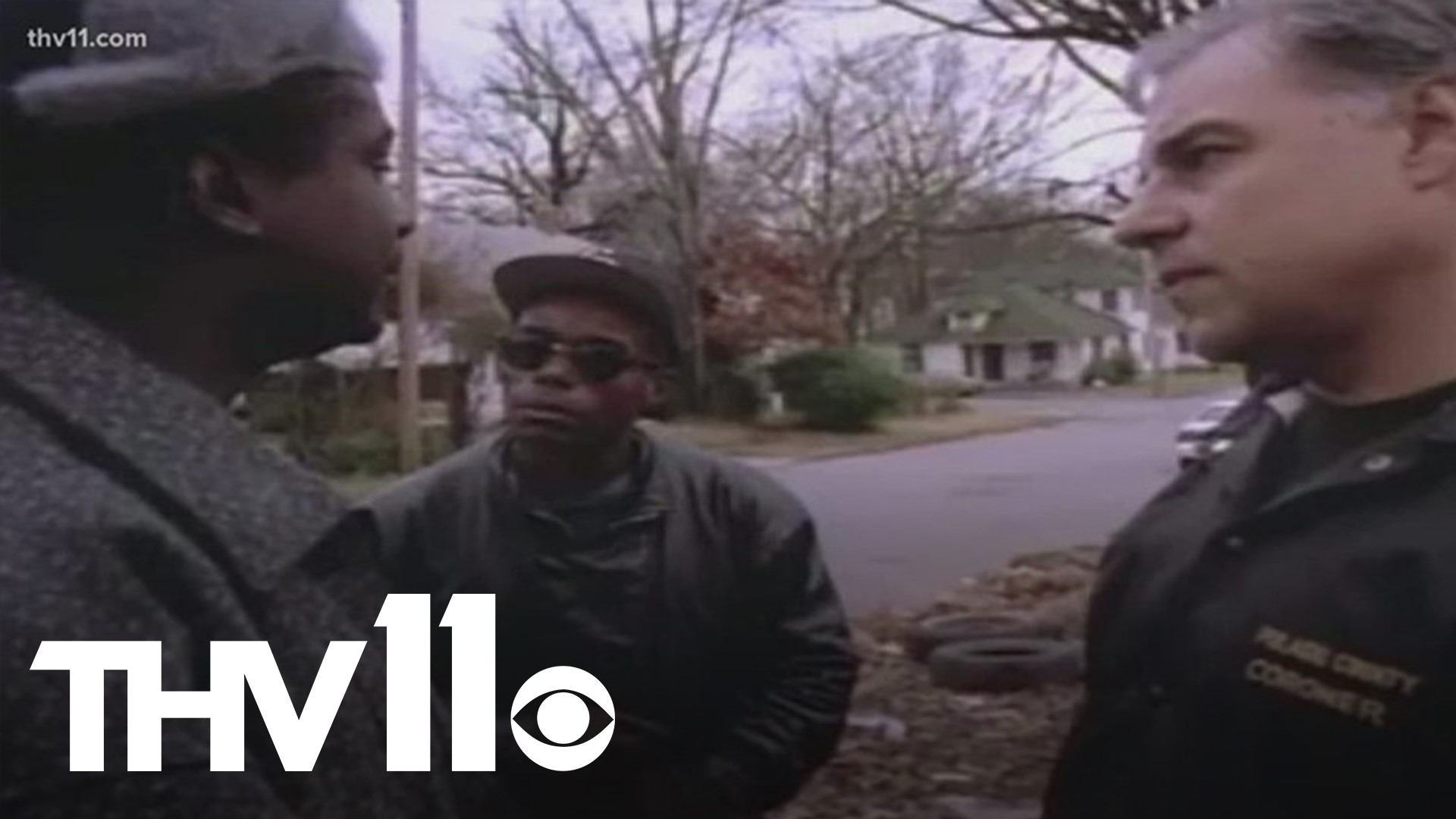LITTLE ROCK, Ark — Bangin' in the Rock is a famous documentary that highlights the notorious drug and gang wars in the 1990's. It featured one man who had a front row seat as an OG member, who has since turned his life around and started a non-profit for at-risk youth.
Leifel Jackson sat down with his nephew, social activist Tim Campbell, for a deeper conversation for Black History Month.
"'Young man, what is that you want to be when you grow up?' and loud and proud with all my chest, I said 'I want to be a Crip!'" said Campbell about a childhood experience.
It was career day when at just six years old, he shocked an audience of adults and students by wanting to be just like his family.
"I was only articulating to them what I deemed as a hero," said Campbell.
His uncle, Jackson, was an OG Crip member.
"When they say your uncle's notorious, I was very notorious. We played a part in bringing the chaos," Jackson said.
He ran the gangs on 14th and Wolfe Street back in the 80's. He was indicted and sent to prison in the 90's.
"Look, it was people dying every day that you know. You can't prepare yourself for that," Jackson said.
With a bleak outlook on life, he had nothing to lose, but said it was seeing innocent lives taken by gang wars that made him want to change.
"You got seven different entities that's saying what we got will stop the violence," said Jackson, who believes too many separate plans can stop progress.
"They scared of the boys. They scared of the teenagers. They scared of the juveniles. You won't even see them in the same room with the people they're trying to save, so how you gonna be a hero?" said Campbell.
The uncle and nephew said it's rare to have inter-generational conversations when Black men don't have enough of these conversations.
"The streets is also an institution. It got everything these other institutions got. It don't look like it in tangible terms, but they speak their own language. They got a code of conduct. They have a stipend. They got internships. They got missions," said Campbell.
Jackson said the cure to violence now is not just the police department, community activists, or churches. It's going to take everybody coming together.
"You can love these streets and you already know where I'm getting at. You can love these streets, but it'll never love you back," said Campbell.

